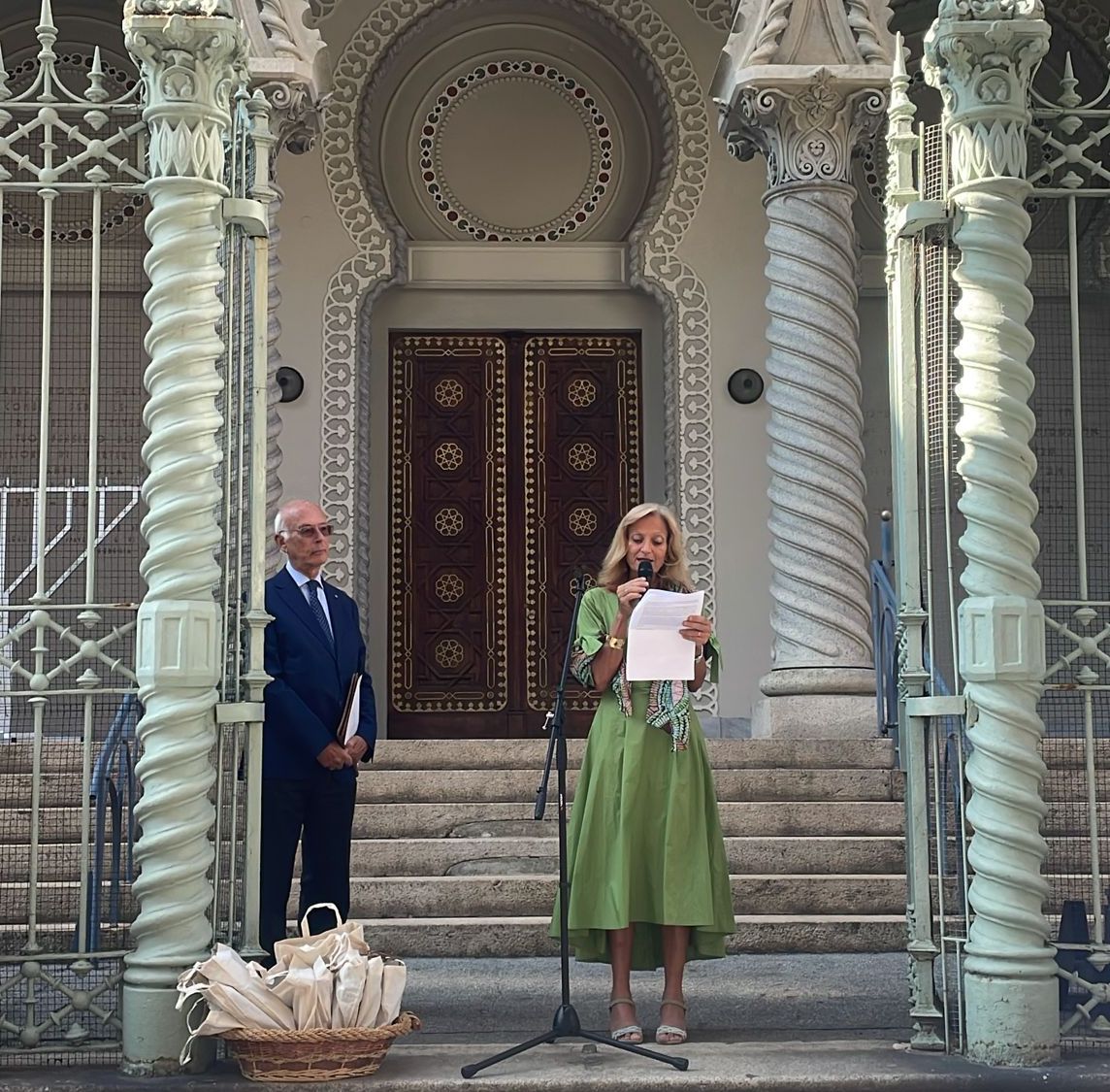EUROPEAN DAY OF JEWISH CULTURE – Turin opened the event. Dario Disegni: We showcase knowledge. Noemi Di Segni (UCEI): A serene and stimulating space

On Sunday 15 September, the 25th edition of the European Jewish Culture Day kicked off in Turin, the lead city this year. The event began, in front of the synagogue entrance, where Dario Disegni, president of the Turisn Jewish Community, addressed the public and read a message from Italian President Sergio Mattarella. “Knowledge is the essential tool to overcome the degeneration of the values of civil coexistence that the founding principles of the Republic enshrine in the equality of all citizens. In a moment of epochal changes and excruciating wounds caused by wars,” wrote the Head of State, “culture, in its plurality, plays a crucial value in the defense of humanity.”
Reflecting on the 600th anniversary of Jewish life in Turin, Disegni described the European Jewish Culture Day, dedicated this year to the theme of family, as “an extraordinary opportunity to promote Jewish life and culture known, serving as a true antidote to prejudice.” “Knowing Jewish culture means understanding that the Jewish experience does not end with the Holocaust and persecution, the horror and crimes endured, and the distortions denounced,” remarked the UCEI President Noemi Di Segni. “It encompasses everyday life, the vitality of communities, children, and families who, before and after the Holocaust, have given a Jewish meaning to their existence.”
Di Segni then addressed the theme of family, to which the 2024 edition of the European Day of Jewish Culture was dedicated. “In its root and concept, Mishpachà (family) in Hebrew means being one in service to the other. It is a word immediate and intuitive for each of us, and it is among the first to which we give meaning after our first breath, surrounded by father, mother, siblings, and in the Jewish world typically by an entire extended family.
“In our experience, the family it is the primary place, central to the transmission of Jewish identity, and today’s event aims to share how of our culture of Jewish families can also contribute to the families with whom we coexist.” “This year, – she continued– the Day comes after long months of suffering and pain, following the massacre on October 7 in Israel, which violated and destroyed homes we believed were secure, forcing people to leave behind their cherished spaces in search of safety, turning hopeful young women into widows, brothers and children into orphans among the more than 1,658 casualties, massacring and violating every sanctity of family, taking hostages, and leaving hundreds of families maimed. And with them, the great family of the people of Israel.”
“With our hearts shattered and fatigued also by a continuous and exasperating distortion of facts, we face increasingly more questions. In this context, the reference to family is unavoidable, as it has become a target, the core on which to inflict horror and where the war has struck. October 7, with its unimaginable pain and mourning, reminds us once again that the role of religious precepts is to support life and coexistence. The abuse and misuse of religious reasons to pursue other objectives generates horror, oppression, and political conquest.”
“For us, however, – she concluded – culture and mutual understanding are essential for curbing hatred, suspicion, and antisemitism. Therefore, we wish to experience this event not as a moment of protest an unsustainable situation but as a serene, joyful, and stimulating space for all participants.”
